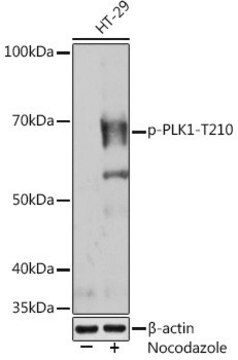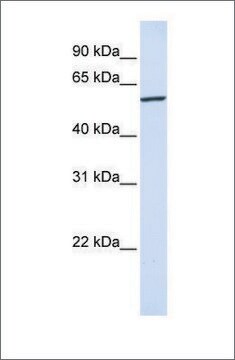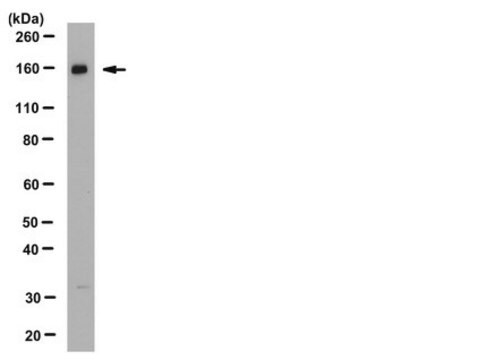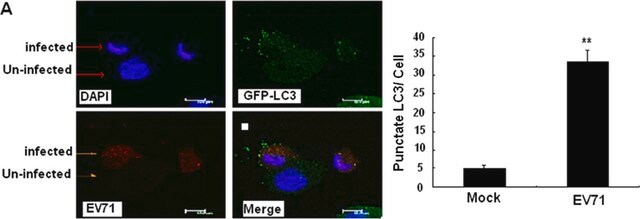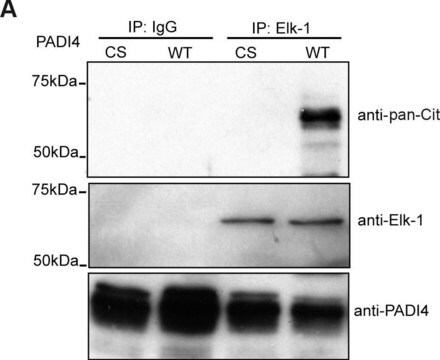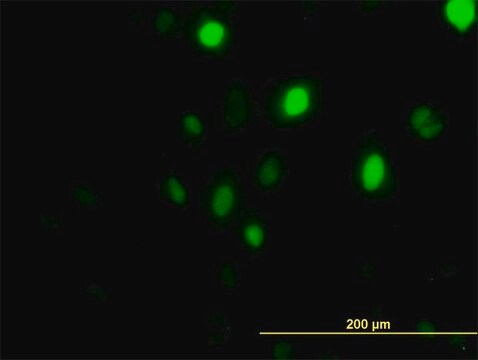05-844
Anti-PLK1 Antibody, clone 35-206
clone 35-206, Upstate®, from mouse
Synonym(s):
Polo-like kinase 1, Serine/threonine-protein kinase 13, cell cycle regulated protein kinase, polo (Drosophia)-like kinase, polo like kinase, polo like kinase, polo-like kinase (Drosophila), polo-like kinase 1 (Drosophila)
About This Item
Recommended Products
biological source
mouse
Quality Level
100
400
antibody form
purified immunoglobulin
antibody product type
primary antibodies
clone
35-206, monoclonal
species reactivity
rat, mouse, human
manufacturer/tradename
Upstate®
technique(s)
immunocytochemistry: suitable
immunohistochemistry: suitable
immunoprecipitation (IP): suitable
western blot: suitable
isotype
IgG2b
NCBI accession no.
UniProt accession no.
shipped in
wet ice
target post-translational modification
unmodified
Gene Information
human ... PLK1(5347)
mouse ... Plk1(18817)
General description
Specificity
Immunogen
Application
Immunohisto/immunocytochemistry: An independent laboratory reported that 1 μg/mL of a previous lot of this antibody showed positive immunostaining for PLK1 in paraformaldehyde treated, Triton X-100 fixed cells.
Epigenetics & Nuclear Function
Cell Cycle, DNA Replication & Repair
Quality
Western Blot Analysis: 0.5-2 μg/mL of this antibody detected PLK1 in RIPA lysates from 3T3/A31 cells.
Target description
Physical form
Storage and Stability
Analysis Note
Positive Antigen Control: Catalog #12-305, 3T3/A31 lysate. Add 2.5 μL of 2-mercapto-ethanol/100 μL of lysate and boil for 5 minutes to reduce the preparation. Load 20 μg of reduced lysate per lane for minigels.
Other Notes
Legal Information
Disclaimer
Not finding the right product?
Try our Product Selector Tool.
Storage Class
10 - Combustible liquids
wgk_germany
WGK 1
Certificates of Analysis (COA)
Search for Certificates of Analysis (COA) by entering the products Lot/Batch Number. Lot and Batch Numbers can be found on a product’s label following the words ‘Lot’ or ‘Batch’.
Already Own This Product?
Find documentation for the products that you have recently purchased in the Document Library.
Our team of scientists has experience in all areas of research including Life Science, Material Science, Chemical Synthesis, Chromatography, Analytical and many others.
Contact Technical Service